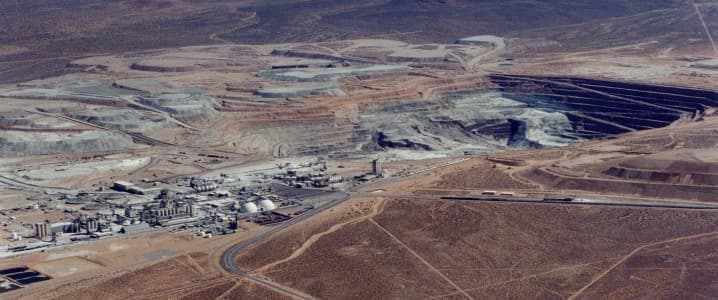
Three months ago, shares of rare earths companies ripped higher after MP Materials (NYSE:MP) unveiled a game-changing deal with the U.S. Department of Defense that marks the most aggressive federal intervention in the rare earths space in decades. The DoD-backed investment package will see the Nevada-based producer build out a fully domestic magnet supply chain and lock in long-term pricing support for neodymium-praseodymium, the critical alloy used in everything from fighter jets to iPhones.
MP shares doubled in a matter of days, with the shares now up 330% in the year-to-date and re-rating the entire Western rare earths complex. Shares of other rare companies have enjoyed similar outsized gains: NioCorp Developments (NASDAQ:NB) has rocketed 332.2% YTD, Ramaco Resources (NASDAQ:METC) has gained 214.5%, Lynas Rare Earths (OTCPK:LYSCF) has returned 178.6% while USA Rare Earths (NASDAQ:USAR) has gained 51.0%.
The MP Materials deal wasn’t just about cash; it’s about control. Under the agreement, the Pentagon will take a 15% equity stake in MP through a $400 million preferred share issuance and secure warrants for additional common stock down the road. The government is also extending a $150 million loan, while JPMorgan and Goldman Sachs are syndicating $1 billion in private financing to bring MP’s so-called “10X Facility” online.
Related: OPEC Rejects Media Reports of Major Output Hike Ahead of G8 Meet
Construction is already underway, with commissioning slated for 2028. The real deal sweetener is a $110/kg floor price guarantee for NdPr magnets, nearly double today’s spot price of $63. That pricing mechanism, backed by the full faith and credit of the U.S. government, creates a bulletproof margin environment for domestic producers and resets the cost basis for long-term buyers across defense, autos, and consumer electronics, according to Reuters.
And now news has emerged that Trump is mulling more investments in critical minerals. Indeed, the Trump administration has proposed an equity stake in Lithium Americas (NYSE:LAC), with the Canadian company looking to negotiate terms for a $2.2 billion loan for its Thacker Pass mine in northern Nevada. The giant lithium mine is set to become one of the largest sources of lithium in North America, with a starting date in late 2027.
According to Mark Chalmers, CEO of Energy Fuels (NYSE:UUUU), the Trump administration needs to strike more such deals with U.S. miners if the United States is to secure its critical minerals supply and break its heavy dependence on China. Chalmers says that multiple investments would lower the risk that comes with depending on just one company. The White House is open to this idea, and is “not ruling out other deals with equity stakes or price floors as we did with MP Materials, but that doesn’t mean every initiative we take would be in the shape of the MP deal,” a Trump administration official told CNBC.
China was the hardest hit by Trump’s tariffs, with the Middle Kingdom now facing an effective tariff of 64.9%, including an additional 34% duty imposed by former President Trump on top of existing tariffs from previous administrations.
Beijing announced a slew of countermeasures, including extra levies of 34% on all U.S. goods as well as export curbs on rare earth minerals. Under the new restrictions, Beijing requires exporters to apply for a license from the Ministry of Economy and also disclose the final use of materials like dysprosium, gadolinium, scandium, terbium, samarium, yttrium, and lutetium.
This is not the first time Beijing has leveraged its dominance in rare earths in a trade war with its biggest rival. Back in December, China banned exports of antimony, gallium and germanium to the U.S., minerals are used in specialty applications in chipmaking, defense and communications industries. In 2023, China banned the export of technology to extract and separate rare earths in a bid to protect its rare earths industries.
However, the MP deal has demonstrated that Washington is willing to play Beijing’s game by breaking with free market ideals and mimicking China’s model of strategic capitalism when and where necessary. According to Rich Nolan, CEO of the National Mining Association, federal investments in other critical minerals like cobalt, graphite and lithium can help lower price volatility that frequently undermines U.S. miners. Kent Masters, CEO at lithium miner Albemarle (NYSE:ALB), says the lithium sector would welcome government investments in deals similar to MP Materials’, “What you want to do is move the market such that private industry can invest behind it,” Masters told CNBC in July.
By Alex Kimani for Oilprice.com
More Top Reads From Oilprice.com
Russian Crude Shipments Hit 16-Month High Despite U.S. Sanctions
BHP Shares Tumble as China Halts Iron Ore Purchases
Kuwait Says Robust Oil Demand Justifies OPEC+ Output Hikes



